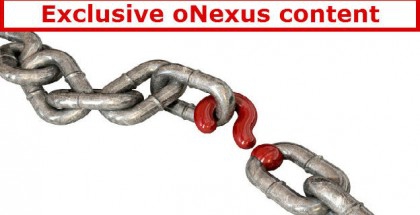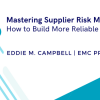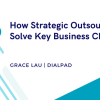As companies have started to internalise (and for that matter, practice) the triple bottom line concept of sustainability, the focus now has shifted to issues beyond their walls of operations and manufacturing. In the world of outsourcing, globalisation and interdependence of suppliers, companies must look into making their supply chains more sustainable.
UN Global Compact (UNGC) and Business for Social Responsibility (BSR) define Supply Chain Sustainability as “the management of environmental, social and economic impacts, and the encouragement of good governance practices, throughout the lifecycles of goods and services. The objective of supply chain sustainability is to create, protect, and grow long-term environmental, social and economic value for all stakeholders involved in bringing products and services to market.”
What’s in it for my organisation?
Whether a company leans towards Freeman’s stakeholder approach or Friedman’s camp to maximise profits for shareholders the choice is clear. No matter the route one takes, grudging or proactive, there are clear benefits to be had. Companies simply need to get on the bus and reap the benefits!
There are different ways to slice the benefits – one could categorise these in three ways.
Business Risk Management: Avoid risk to image associated with bad
social /environmental practices of suppliers. Manage business risks associated with climate change.
Unsound practices (e.g., non-compliance) of suppliers could result in major supply chain disruption and cause delays in production. Labour challenges could create havoc to on-time delivery; safety and poor environmental management practices could result in production stoppage and poor productivity. These issues are realistic especially with increased sourcing from low–cost countries. In addition, companies are now partnering with fewer suppliers than before. Having a close partnership with these suppliers, ensuring a robust management system and its governance can help parent company mitigate these risks.
The climate change debate better be over by now. Thailand, in 2011, was devastated by one of the worst floods in its history. The economic damages were estimated at over $45 billion. Most of the loss came from the manufacturing sector with floods inundating seven major industrial zones. This resulted in major supply chain disruptions. Regional automobile production was affected. Flooding also caused a global shortage of hard disk drives. Disruptions to manufacturing supply chains affected regional automobile production and caused a global shortage of hard disk drives which lasted throughout 2012. These risks have to be taken into consideration and redundancy built into supply chain strategy.
Operations Excellence: Reduce supply costs, environmental footprint of its supply chain.
Responsible management of operational inputs, such as energy, water, natural and synthetic materials can greatly reduce companies’ procurement costs. Using operations excellence tools, such as lean sigma, companies can reduce cost of these operational inputs. In many cases, the carbon footprint sustainability goals of companies are indeed achieved by employing these tools and teams. By becoming more efficient (e.g., using less electricity and water, and creating less waste) companies can lower their COPS (cost of products sold), thereby improving profit margins.
Leading companies have also extended their best practices to key supplier partners in helping them reduce their footprint through collaborative initiatives. A leading pharma company extended its energy management and reduction know-how by partnering with a key supplier and helped it reduce its carbon footprint. Financial savings form the initiative more than off-set the cost incurred by the pharma company expenses in supporting this initiative.
Innovative Products: Build successful businesses by developing differentiated products with sustainability attributes.
A sizable number of consumers prefer eco-friendly offerings, and even those that do not or are at best neutral would switch to these products if these products provide price advantage.
Under the Unilever Sustainable Living Plan the company has integrated sustainability aspects into a number of their products. These include Dove, Lifebuoy, Ben & Jerry’s and Comfort. These products have contributed to Unilever’s growth, while reducing waste, water use in manufacturing, and CO2 from energy use has created cost efficiencies. Unilever now sources more than 55% of its agricultural raw materials sustainably, which reduces risk to its supply chain while benefiting producers and the environment.
Dutch giant Philips established its green products line in 2004 with a goal to reach 50% of overall sales by 2015. The goals was met (and exceeded) in 2014, contributing to over €11bn in sales. These products have improved environmental performance often supported by a recognised eco-performance label, developed through their EcoDesign process.
In order to make supply chain sustainability stick senior management buy-in is an absolute must. Without their drive and accountability sustainability can become just another short-term corporate initiative, a “flavour of the month” that quickly fades into oblivion. Change happens quickly when the C-suite decides to focus on sustainability.
However, a company also needs the right people to embrace the sustainability journey. So, recruiting and retaining the right kind of people becomes very important. Various researches suggest in the US that a majority of not just millennials but employees of all ages regard social responsibility and environmental commitment as important criteria in selecting employers. Companies that try to become sustainable may well find it easier to hire, retain talent as well as “sustain” their sustainability programs and culture.









